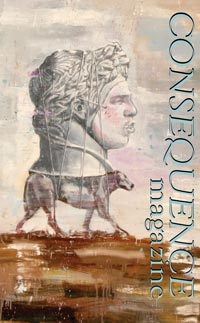
- This event has passed.
The Emigré Writer’s Place in America: Escaping Censorship and Adjusting to Freedom
May 8, 2015 | 7:00 pm - 10:00 pm
Free and open to the publicEvent Navigation

Consequence Magazine invites you to celebrate the release of a new issue! We’ll be hosting a panel discussion and reception.
The Emigré Writer’s Place in America: Escaping Censorship and Adjusting to Freedom
Featuring Marjorie Agosín, Ha Jin, Shahriar Mandanipour, and moderator Alexandra Marshall
Literature provides every culture with its moral compass and when a repressive regime denies freedom of expression it damages its own society as well as the writer who could repair it. Forced to either silence themselves or escape, émigré writers face new hardships and unforeseen challenges. In finding a home in a strange culture they must search for solid ground under their feet and a mental grounding for their art. Will they now measure success as writers by remaining faithful to their native culture, by incorporating a new one, or by some new marker—some yet undiscovered part of their journey? Is restricting freedom of expression both an external and internal experience—do writers self-censor? How do the loss of homeland, separation from loved ones and the shock of relocation affect their writing? What gets lost in translation, in thinking in another language and/or writing for a different audience? How do émigrés find a supportive community that will enable their artistic freedom to bear fruit? And what is the difference between an ex-pat and a refugee?
Did You Know?
Certain books were “banned in Boston” at least as far back as 1651, when one William Pynchon wrote a book criticizing Puritanism.